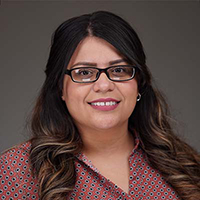Many researchers recognize distinct types of curiosity. Intellectual curiosity, also called epistemic curiosity, refers to a person’s desire to accumulate knowledge, often for professional or academic gain. Social curiosity, also called empathetic or interpersonal curiosity, describes the motivation to learn about human emotions and behaviors.
Today, new terms such as clinical curiosity and medical curiosity are emerging as an understudied aspect of clinical education.
Curiosity Boosts the Brain and Impacts Patient Care
A mindset of curiosity is a virtue in medical care. According to a 2022 study published in Medical Information Online, heightened curiosity in medical students is positively linked to memory, recall and test scores. In short, curious people are likely to ask more questions, identify mistakes, effectively problem solve and retain what they’ve learned—all of which can help propel your career.
In fact, your body actively rewards curiosity. A 2014 study published in the journal Neuron showed that when you question something, the parts of your brain that register discomfort light up, indicating that you’re bothered by not knowing something. Next, the part of your brain that is responsible for memory kicks into overdrive so that you can learn and retain that new information more efficiently. Finally, your reward circuitry kicks in. When you satisfy your curiosity, your brain floods your body with dopamine. It’s easy to see why curiosity can become a habit!
Taking an inquisitive approach to bedside care can even have a positive impact on your patients. In many ways, curiosity is a precursor to empathy: It prompts you to imagine the experience of another person. When assigned to a new patient, consider asking yourself, “What do I know about this person? What are their hobbies and ultimate goals for recovery? Do I truly know their health history?”
These simple questions can create a meaningful connection and a well-rounded care plan that holistically encompasses the patient’s needs.
Curiosity as a Tool for Career Growth

Sarah Peña, RN, BSN, chief nursing officer (CNO) at Encompass Health Rehabilitation Hospital of San Antonio, credits her impressive nursing career to being forthright about her curiosity.
She joined Encompass Health right out of nursing school in 2012, and soon began shadowing her nursing supervisors. While developing leadership skills, Peña realized documentation wasn’t her strong suit, so she asked the hospital’s leadership team what she could do to improve. Many conversations and a few training courses later, documentation became her forte.
“I actually became the hospital’s patient assessment standards coordinator (PASC) for three years,” Peña said. “As soon as the PASC processes became clear to me, it was like a lightbulb moment. I just needed to ask the right questions. Then, I realized I was good at this aspect of clinical care, and I could be a great resource for the nursing staff.”
After the PASC position, she returned to the nursing team and would later become the hospital’s CNO. At Encompass Health, nurses can pursue other specialties such as case management, infection prevention, patient safety, wound care, acute care transfer prevention and more. Diving into a specialty can position you as a subject matter expert and allow you to informally lead your peers.
“Leaders typically notice when nurses are particularly curious about a specific process. For example, some nurses take an interest in wound care. You’ll notice they want to understand the process more fully; they’re always asking questions in hopes of improving the outcome for the patient and minimizing mistakes,” Peña said. “Not everyone does this. If you have that natural inquisitiveness for something, you should follow it.”
Ask the Right Questions to Avoid Curiosity Pitfalls
Learning is a critical part of advancing your career, but it requires some vulnerability. It’s natural to be hesitant to admit you have a knowledge gap. You may feel that doing so will lead colleagues to perceive you as less competent. Rather, curiosity signals to others that you’re driven to improve both your own skillset and the quality of patient care you provide.
While there’s nothing wrong with admitting you don’t know something, you could benefit by being specific when verbalizing your curiosity. Framing questions in an indirect way (such as “Maybe I’m wrong, but I think….” or “I wonder if we can try this method…”) may not result in the answers you need. Below are some approaches to consider, especially when using curiosity as a tool for professional growth.
- First, state what you know. This will show that you’re invested in the topic and simply want more clarity. Example: “I’ve reviewed the patient intake form and have spoken with the physician, however, I’m curious about this uncommon co-morbidity …”
- Be specific about where confusion arises. Example: “I understand how to complete this documentation until question 10. Would you provide an example of how to enter the record here?”
- Don’t be shy. When attending a presentation or demonstration, speak up about your questions before the presenter moves on, if possible. Example: “This is my first exposure to this topic, and I want to make sure I understand. Could you tell me more about …”
- Share your ideas. If you have conflicting ideas about handling a situation, propose both solutions to a knowledgeable colleague or leader. Example: “These are the two options I believe would resolve the situation. Which do you see as the ideal solution?”
- Express your interests. If you want to pursue a clinical specialty, speak up and ask for guidance. Example: “I’m particularly interested in risk management. What are two things I can do to improve my knowledge of our risk program? What additional education would be needed to obtain a risk management coordinator role?”
- Be bold. Curiosity can drive you to ask tough questions, even if it ruffles some feathers. Be respectful but direct. Example: “I understand we’ve always done things this way, but I believe we can improve. What are the roadblocks that prevent us from changing this protocol?”
Let Your Curiosity Lead You
Strengthening your sense of curiosity can change how you interact with colleagues, patients and peers. Make a habit of being curious and you may become a lifelong learner, all while deepening your self-awareness, strengthening your clinical reasoning and steering your career in unexpected directions.
The content of this site is for informational purposes only and should not be taken as professional medical advice. Always seek the advice of your physician or other qualified healthcare provider with any questions you may have regarding any medical conditions or treatments.



